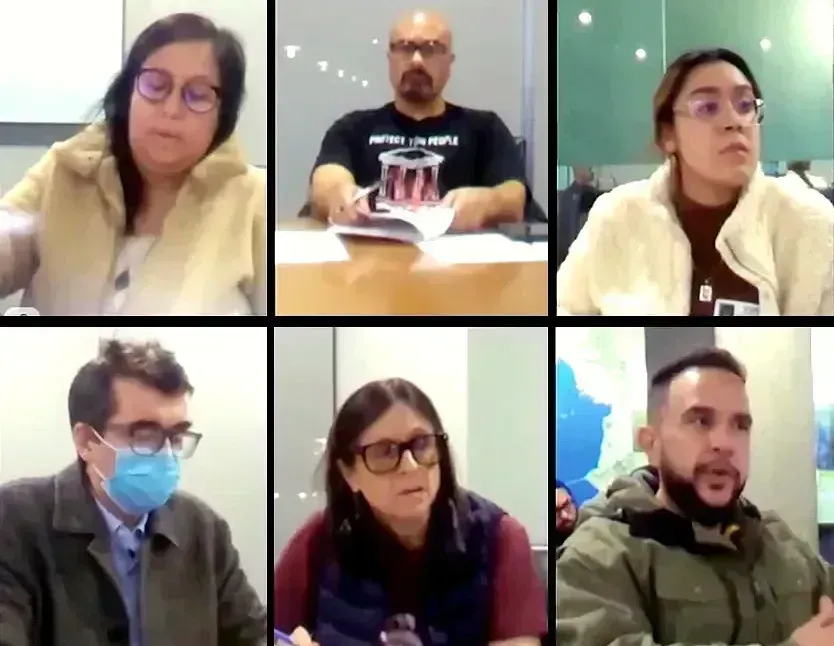

Members of the Community Police Review Commission approved making three recommendations to the Richmond City Council during their most recent meeting on February 5.
The Richmond Community Police Review Commission is pushing to expand public access to its complaint process, including extending the filing deadline, allowing anonymous submissions, and broadening its oversight authority.
While advocates argue these changes will improve police accountability, the Richmond Police Officers Association has pushed back, calling the proposals unnecessary and politically motivated.
The Richmond Municipal Code currently limits individuals' ability to file complaints against police officers to 120 days. Critics argue that this timeframe creates barriers for those seeking redress, particularly those who experience emotional distress, lack awareness of the commission, or have difficulty gathering necessary evidence.
Community Police Review Commissioner Carmen Martinez said extending the deadline to one year would create a more equitable system, encourage more people to come forward and ensure greater accountability. Similar oversight bodies in Berkeley, Oakland, and San Francisco allow longer filing periods or do not impose deadlines.

"The 120-day limit creates a significant barrier for those seeking justice," Martinez said. "Extending it to a year would encourage more community members to come forward and improve accountability."
Benjamin Therriault, President of the Richmond Police Officers Association, called the efforts "fear-mongering" driven by activist agendas.
Therriault said the original filing deadline was 90 days, but it was later extended to 120 days due to concerns that there was insufficient time for complaints. However, he suggested that arguments for further extensions follow a familiar pattern.
"This was the same kind of tactic that was employed before: people don't have enough time, etc., and so it was increased to 120," Therriault said.
Therriault said public comments on the matter are largely coordinated efforts from advocacy groups like Reimagine Richmond rather than reflecting specific concerns unique to the city.
"It's pretty clear comments are farmed out by Reimagine Richmond. It's not stuff that pertains to the jurisdiction. It doesn't seem to be anything specific to Richmond," Therriault said.
Therriault said the issue will be subject to another "meet and confer" action with the City of Richmond. Meet and confer are meetings involving discussions between labor unions and city officials to address issues and make decisions affecting workers and the city.
A member of the public named Karen described herself as a lifelong Richmond resident and survivor of police violence and spoke about the importance of extending the time frame to file complaints against police misconduct.
"I am also a victim and survivor of police violence. My daughter, who is four years old, Luna Bella, is only four years old, but before she was even born, she became a victim of police violence," she said. "I'm so passionate about it because it's taken me over four years to this day to be able to build the confidence and the words to be able to speak up for myself and my daughter against what happened to us."
Another proposed change would remove the requirement for complainants to sign their names, which currently makes their identities public. Commissioners contend that this requirement deters individuals from filing complaints due to fear of retaliation, privacy concerns, or immigration status.
Commissioner Marisol Cantu said anonymous complaints should be allowed due to fear of retaliation.
"This is really about privacy, security, and confidentiality for our community members and protection for them, especially under the current administration, where there is complete fear and panic in the community," Cantu said.
Commissioner Oscar Gacia questioned the usefulness of anonymous complaints based on previous investigations.
"Even with a name, even with a good witness, there have been challenges with many complaints," Garcia said. "If we're going to move to a realm where everything is going to be anonymous and or potentially everything can be anonymous, I see that creating an even more difficult investigating situation."
Commission members also sought to expand the CPRC's authority. Under the current system, the commission's ability to receive, investigate, and hear complaints is limited. Commissioners argued that granting the CPRC broader oversight, including the ability to review all complaints related to the Richmond Police Department, would strengthen transparency and accountability. They also point to oversight models in neighboring cities that offer more accessible and thorough review processes.
Commissioners said expanding the commission's scope would allow for tracking and identifying recurring incidents and patterns of behavior. This would provide a broader view than the current limitations allow.
"Last year, according to the report, we had 12 complaints. We just went from a part-time investigator to a full-time investigator, so there would be plenty of capacity, and I believe that we have a council and community would be behind hiring more help if and when it is needed," Cantu said.
Thanks to our subscribers, who help make this coverage possible.
If you are not a subscriber, please consider supporting local journalism with a Grandview Independent subscription. Click to see our monthly and annual subscription plans.
Copyright © 2025 Grandview Independent, all rights reserved.
